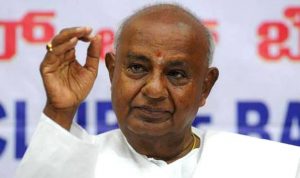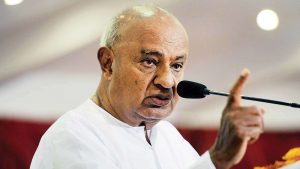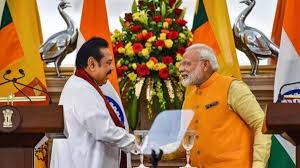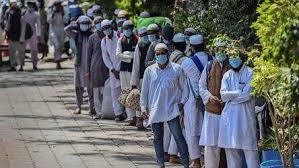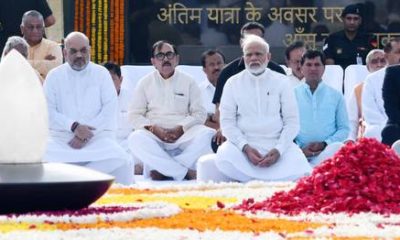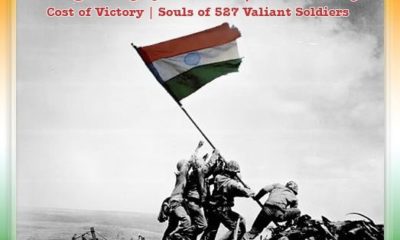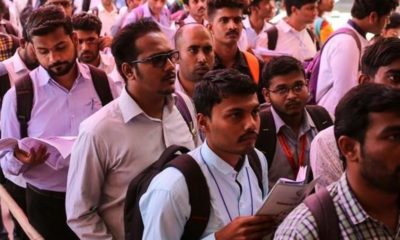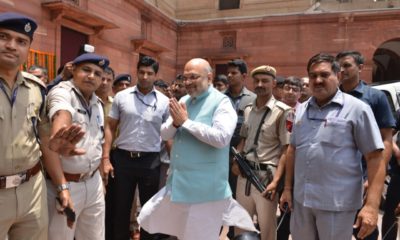Feature
This former Prime Minister hints at not contesting Lok Sabha polls
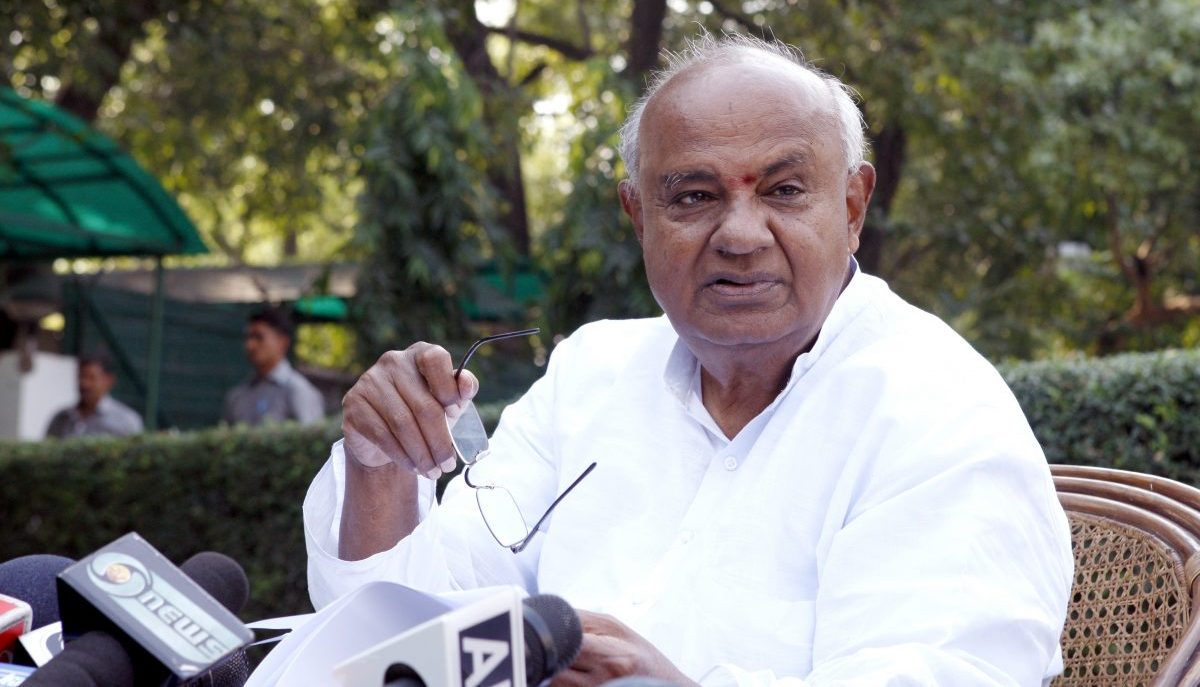
New Delhi: Indicating that he may not contest the upcoming parliamentary election, former Prime Minister H D Deve Gowda said today that he expects to be given sufficient time to deliver probably his last speech in Parliament next week when the House takes up discussion on the interim budget.
The 85-year-old JD(S) chief also expressed anguish that he was not given enough time to speak in Lok Sabha during the debate on motion of thanks to the President’s address on February 7 despite a request made to Speaker Sumitra Mahajan.
Gowda said he would even request the Congress party to give some of its allotted time in the Lower House to him to complete his last speech.
“I am disappointed. I am not satisfied (with my speech on the President’s address). Barely I had spoken for six minutes, the Speaker cautioned me to finish my speech. Still, I spoke for some more time but I was not satisfied,” Gowda told reporters.
The JD(S) leader said that he had specially requested the Speaker to give him an opportunity to speak during the debate on the interim budget and motion of thanks on the President’ Address as it might be his last speech in Parliament.
India’s former Prime Minister hints not contesting Lok Sabha elections:
“I have never criticised anyone personally. I sought time to speak not to criticise anyone. I have governed the country for 320 days and people of this country do not know what I did. The sole intention was to share what I did when I was Prime Minister because I have may not come to Parliament again,” he added.
Gowda, who led a coalition government for 10 months between 1996-97, hoped to get sufficient time on Monday to speak during the debate on the interim budget.
“I will request Congress leaders to give their time to me. Let’s see if they will give,” he said, adding that this could be his last speech in Parliament.
It may be noted that the former prime minister’s grandsons are vying for party ticket to contest the Lok Sabha polls from Hassan, currently represented by him.
Entertainment
Meghalaya Reserves Legalized Gambling and Sports Betting for Tourists

The State Scores Extra High on Gaming-Friendly Industry Index
Meghalaya scored 92.85 out of 100 possible points in a Gaming Industry Index and proved to be India’s most gaming-friendly state following its recent profound legislation changes over the field allowing land-based and online gaming, including games of chance, under a licensing regime.
The index by the UK India Business Council (UKIBC) uses a scale of 0 to 100 to measure the level of legalisation on gambling and betting achieved by a state based on the scores over a set of seven different games – lottery, horse racing, betting on sports, poker, rummy, casino and fantasy sports
Starting from February last year, Meghalaya became the third state in India’s northeast to legalise gambling and betting after Sikkim and Nagaland. After consultations with the UKIBC, the state proceeded with the adoption of the Meghalaya Regulation of Gaming Act, 2021 and the nullification of the Meghalaya Prevention of Gambling Act, 1970. Subsequently in December, the Meghalaya Regulation of Gaming Rules, 2021 were notified and came into force.
All for the Tourists
The move to legalise and license various forms of offline and online betting and gambling in Meghalaya is aimed at boosting tourism and creating jobs, and altogether raising taxation revenues for the northeastern state. At the same time, the opportunities to bet and gamble legally will be reserved only for tourists and visitors.
“We came out with a Gaming Act and subsequently framed the Regulation of Gaming Rules, 2021. The government will accordingly issue licenses to operate games of skill and chance, both online and offline,” said James P. K. Sangma, Meghalaya State Law and Taxation Minister speaking in the capital city of Shillong. “But the legalized gambling and gaming will only be for tourists and not residents of Meghalaya,” he continued.
To be allowed to play, tourists and people visiting the state for work or business purposes will have to prove their non-resident status by presenting appropriate documents, in a process similar to a bank KYC (Know Your Customer) procedure.
Meghalaya Reaches Out to a Vast Market
With 140 millions of people in India estimated to bet regularly on sports, and a total of 370 million desi bettors around prominent sporting events, as per data from one of the latest reports by Esse N Videri, Meghalaya is set to reach out and take a piece of a vast market.
Estimates on the financial value of India’s sports betting market, combined across all types of offline channels and online sports and cricket predictions and betting platforms, speak about amounts between $130 and $150 billion (roughly between ₹9.7 and ₹11.5 lakh crore).
Andhra Pradesh, Telangana and Delhi are shown to deliver the highest number of bettors and Meghalaya can count on substantial tourists flow from their betting circles. The sports betting communities of Karnataka, Maharashtra, Uttar Pradesh and Haryana are also not to be underestimated.
Among the sports, cricket is most popular, registering 68 percent of the total bet count analyzed by Esse N Videri. Football takes second position with 11 percent of the bets, followed by betting on FIFA at 7 percent and on eCricket at 5 percent. The last position in the Top 5 of popular sports for betting in India is taken by tennis with 3 percent of the bet count.
Local Citizens will Still have Their Teer Betting
Meghalaya residents will still be permitted to participate in teer betting over arrow-shooting results. Teer is a traditional method of gambling, somewhat similar to a lottery draw, and held under the rules of the Meghalaya Regulation of the Game of Arrow Shooting and the Sale of Teer Tickets Act, 2018.
Teer includes bettors wagering on the number of arrows that reach the target which is placed about 50 meters away from a team of 20 archers positioned in a semicircle.
The archers shoot volleys of arrows at the target for ten minutes, and players place their bets choosing a number between 0 and 99 trying to guess the last two digits of the number of arrows that successfully pierce the target.
If, for example, the number of hits is 256, anyone who has bet on 56 wins an amount eight times bigger than their wager.

